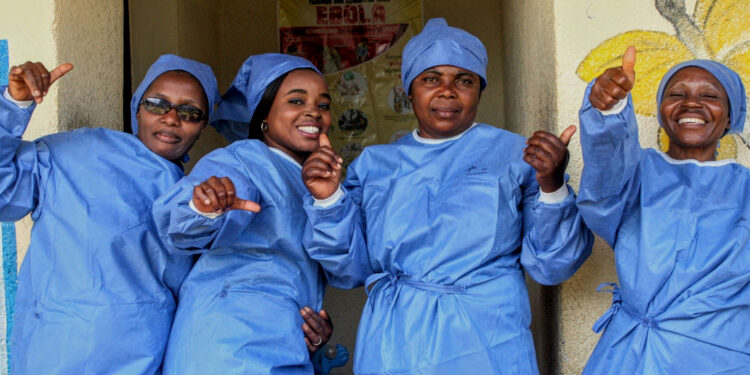Health authorities in Uganda have formally announced an end to the recent Ebola outbreak, bringing to a close a public health emergency that lasted fewer than ninety days. The swift resolution comes as a relief to both national and international health organizations that collaborated to contain the virus.
This marks the country’s second Ebola outbreak in recent years, with the first laboratory-confirmed case identified on January 30, 2025. Health officials reported a total of 14 cases, including 12 confirmed infections and two probable ones that could not be verified through testing.
Tragically, four lives were lost—two confirmed Ebola deaths and two probable—while ten patients successfully recovered. As part of containment efforts, health workers monitored 534 individuals who had come into contact with infected persons, ensuring early detection of any new cases.
In accordance with World Health Organization guidelines, Uganda began its official 42-day countdown to declare the outbreak over on March 15, 2025, following the discharge of the last confirmed patient.
The country’s ability to respond effectively was bolstered by its experience with previous outbreaks, allowing for a rapid and well-coordinated effort. The Ministry of Health immediately activated emergency protocols, deploying response teams, enhancing surveillance systems, and establishing treatment centers with support from WHO and partner organizations.
To prevent cross-border transmission, authorities implemented stringent health screenings at key entry points, particularly in and around Kampala.
WHO played a critical role in the response, mobilizing more than 130 local and international experts to assist with case investigation, contact tracing, and laboratory testing. Over 1,500 samples were analyzed under strict biosafety protocols, with WHO providing logistical support and training.
The outbreak involved the Sudan virus disease (SVD) strain of Ebola, known for its high fatality rate—historically claiming the lives of four out of every ten infected individuals.
Although no approved vaccines or treatments exist for this particular strain, several candidates are currently undergoing clinical trials. Uganda moved swiftly to initiate a randomized vaccine trial just days after declaring the outbreak, employing the ring vaccination strategy. Additionally, the antiviral drug Remdesivir was administered under emergency use protocols.
“Uganda’s leadership and resilience were crucial in containing this outbreak,” said WHO representative in Uganda Dr Kasonde Mwinga.
“From day one, WHO worked hand-in-hand with the Ministry of Health, deploying expertise, providing essential supplies, and ensuring every suspected case was investigated. The people of Uganda have shown extraordinary resolve.”
Even as the outbreak is declared over, Uganda remains vigilant. The Ministry of Health, with ongoing support from WHO and partners, continues to invest in surveillance systems, survivor care programs, and preparedness measures to guard against future threats.
WHO Director-General Dr Tedros Adhanom Ghebreyesus praised Uganda’s health workers and government for their decisive action.
“When the first case was confirmed, WHO deployed experts within 24 hours to support the ministry in all aspects of the response. We mobilised 129 local and international staff, coordinated partners; helped to scale up laboratory capacity; provided essential supplies; and supported community engagement,” Ghebreyesus said.
“The outbreak is over, but the threat remains.
“WHO remains committed to strengthening surveillance, readiness and rapid response systems in Uganda and across the region.”
Ghebreyesus highlighted Uganda’s success as proof that rapid mobilization, strong coordination, and decisive leadership can effectively halt the spread of deadly diseases.




































